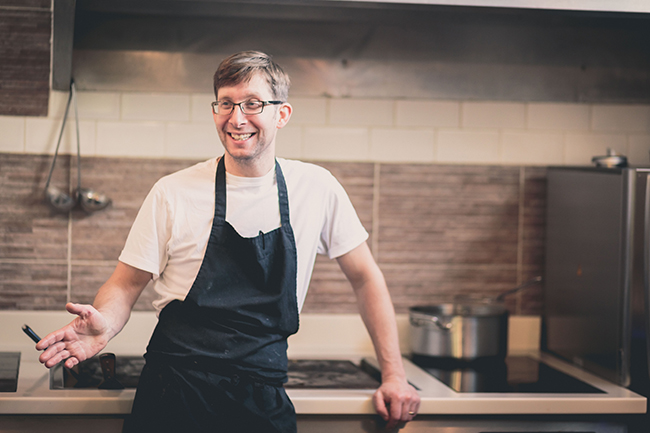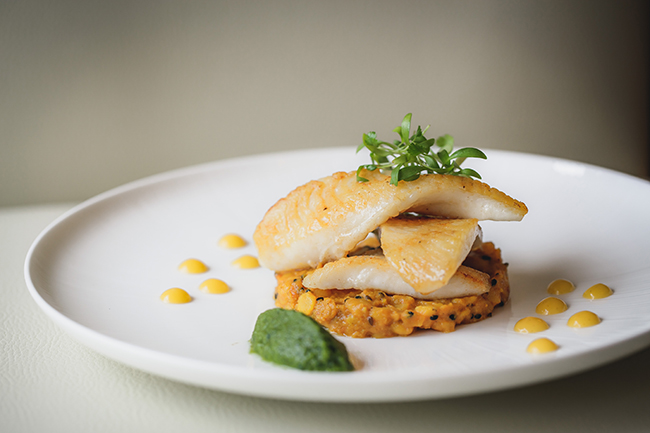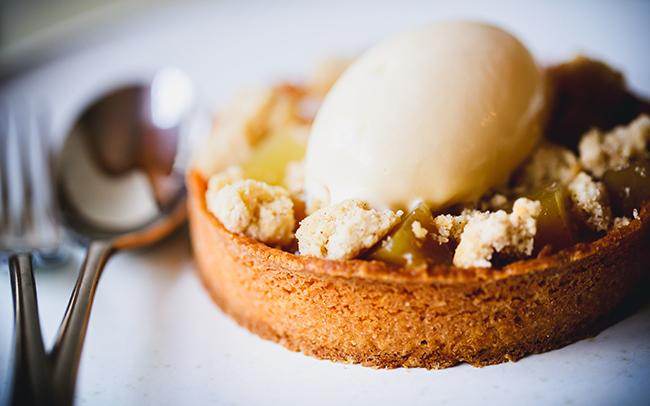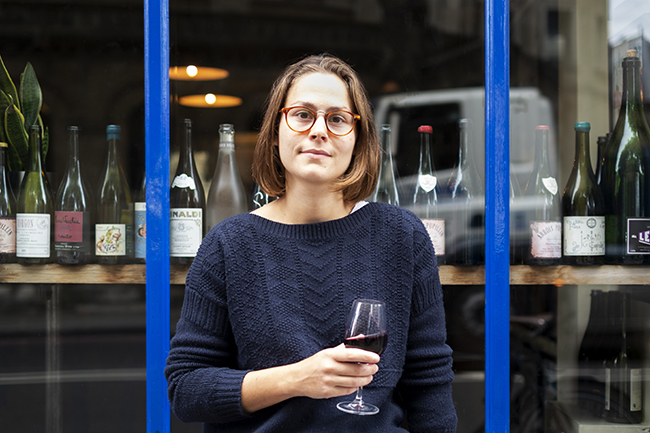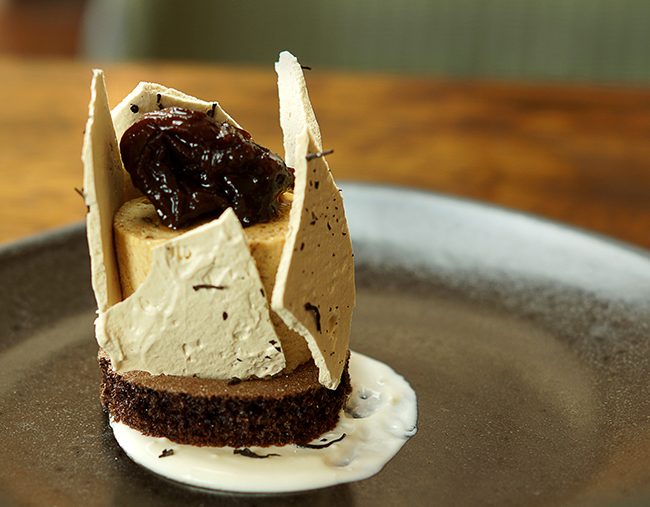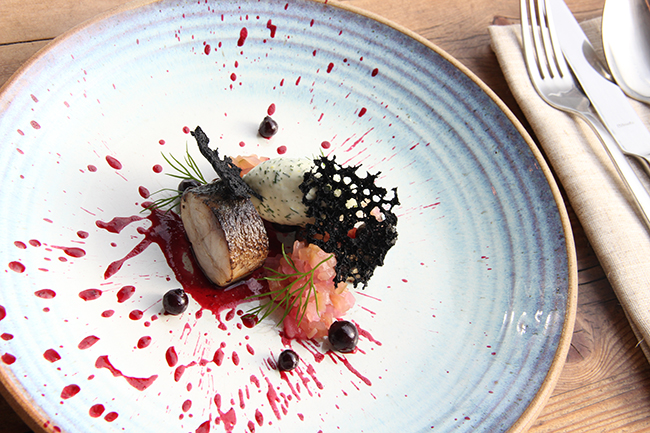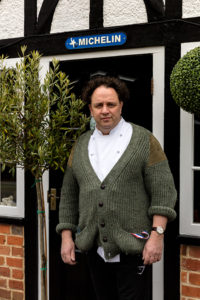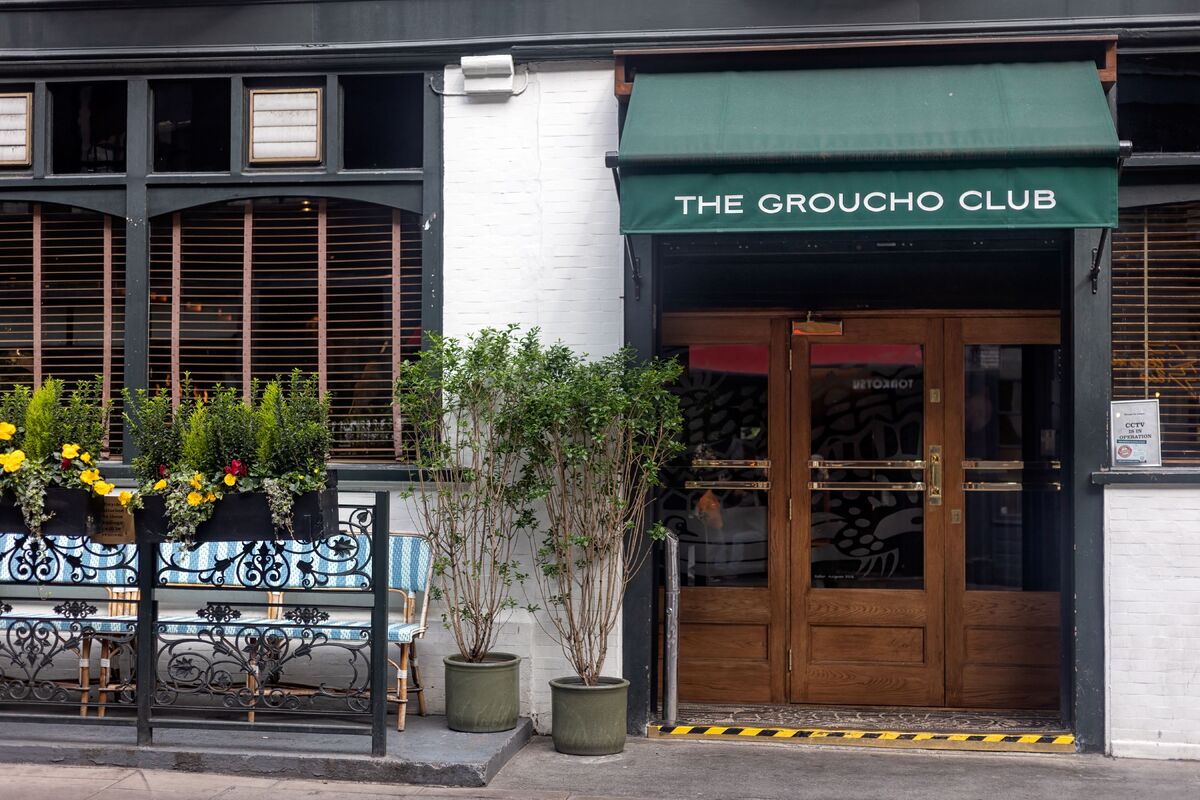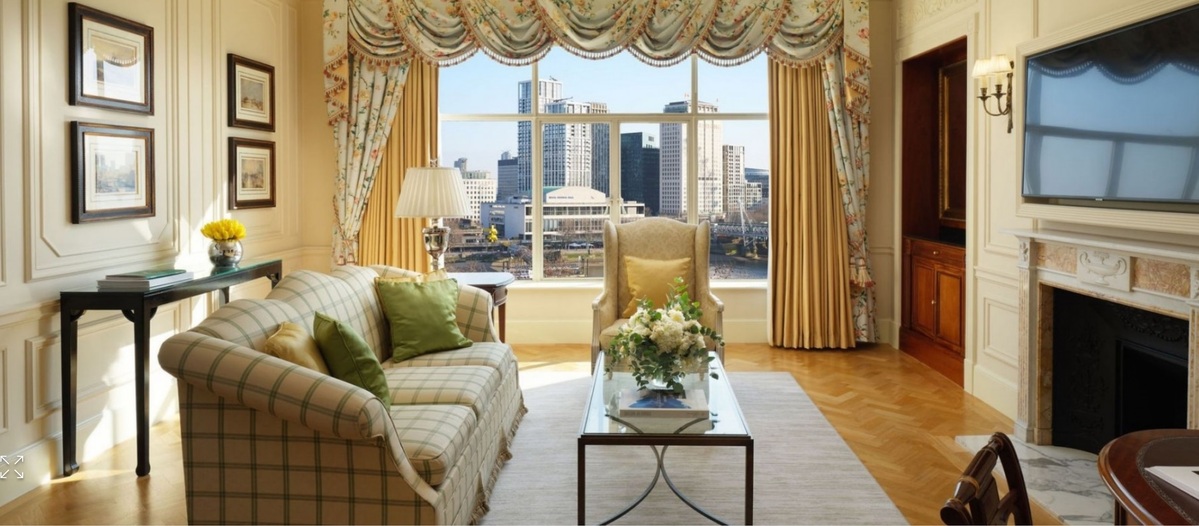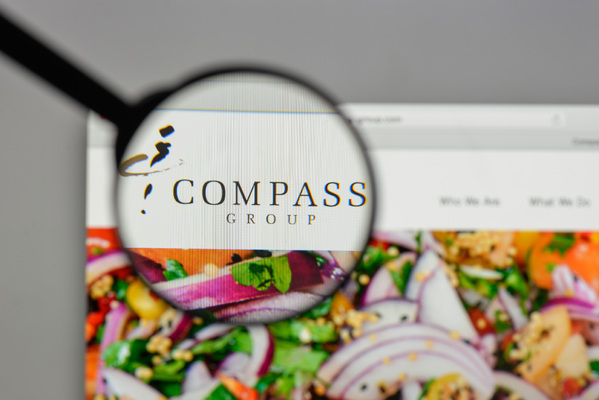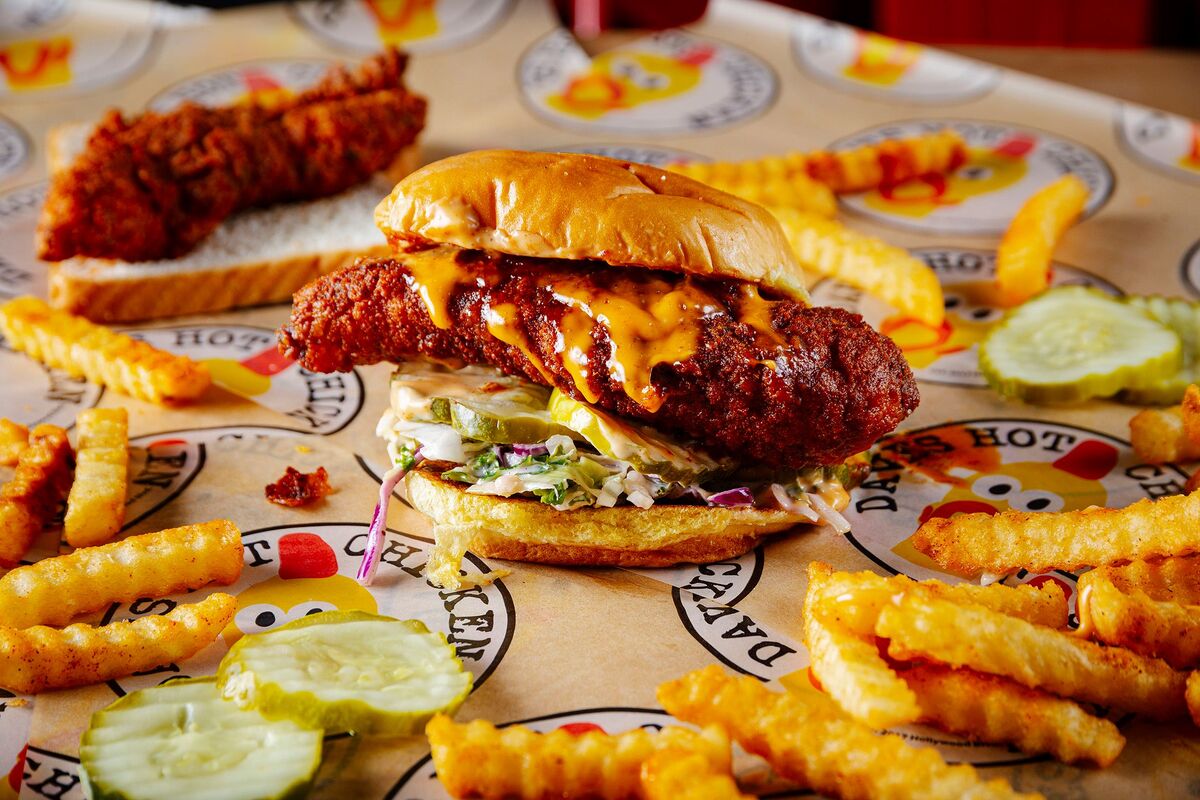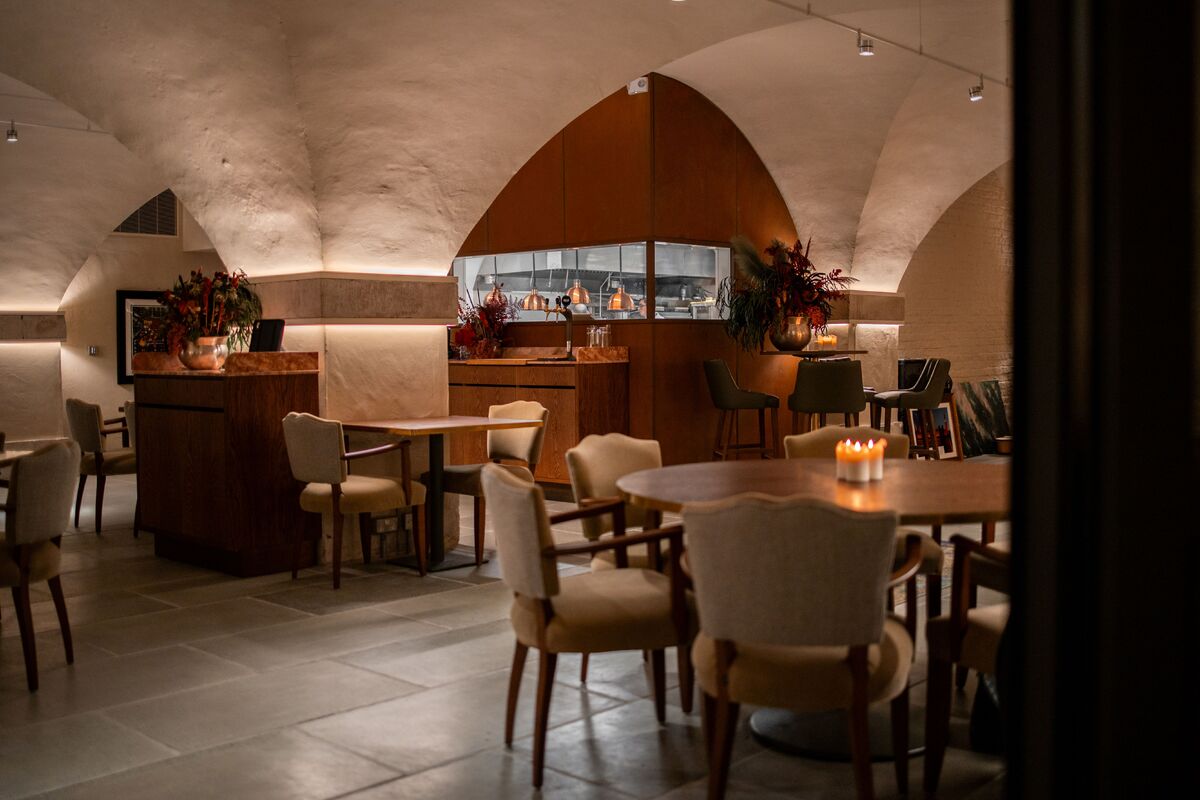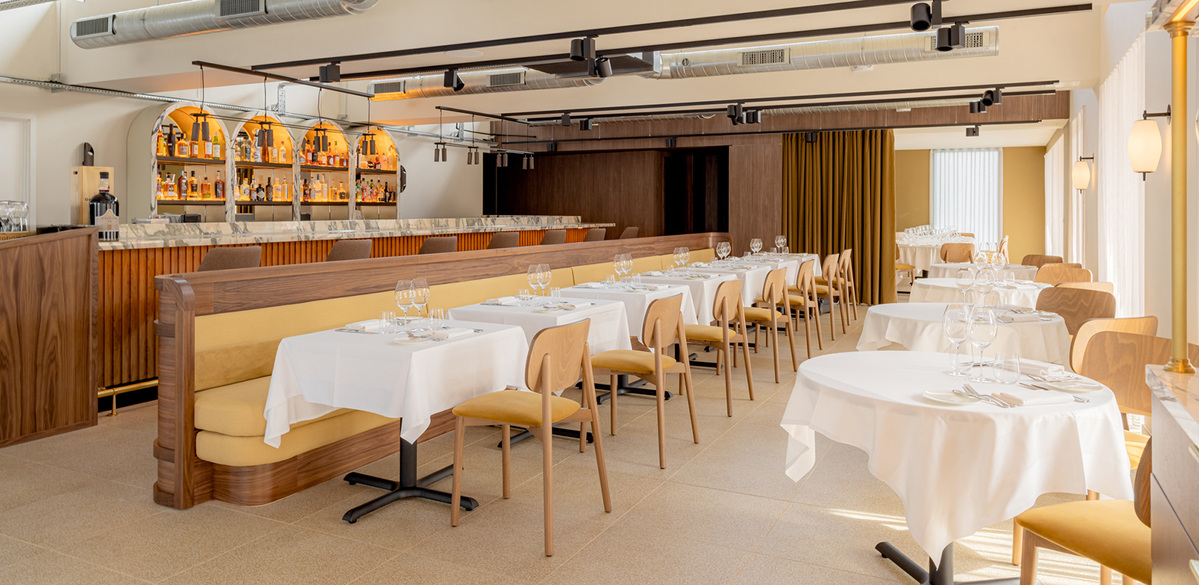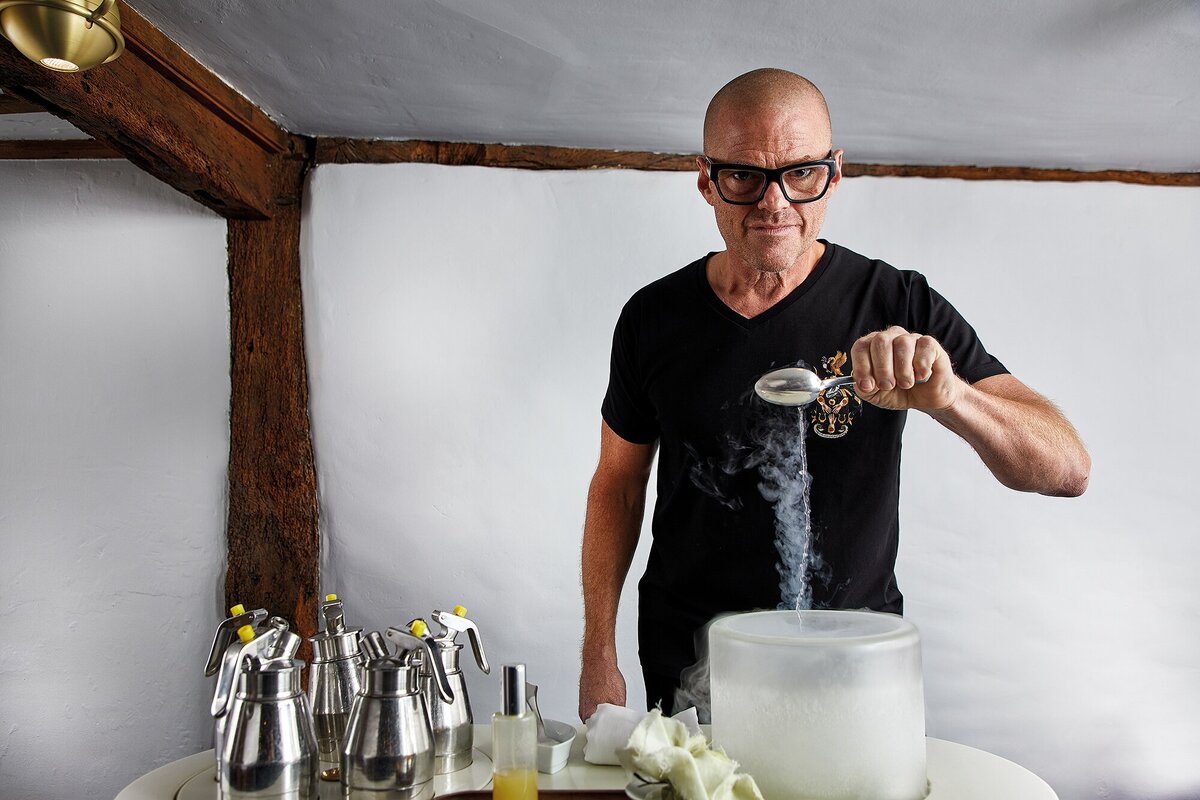One and only: the chefs making a success of working alone
Some chefs have taken the dream of being answerable to nobody but themselves and made it a reality: working in the kitchen alone, serving diners and running a business almost entirely by themselves. Fiona Sims talks to the chefs who are flying solo
This is the kind of place some chefs dream about. The one-man (or woman) show, where diners eat beautifully made plates of food, the chef doubles as the waiter, and the produce speaks for itself.
Itâs an attractive proposition, certainly â" especially now, with the Brexit shambles and the continuing hospitality skills shortage. But what if something goes wrong? What if the customers are late? What happens when youâre sick? Doesnât it get lonely? And who do you bounce menu ideas off?
But there is a growing breed of chefs who have chosen to go it alone â" and even a couple (including Mangeolles) who have achieved Michelin-star status. The Caterer talks to four chefs who are successfully flying solo â" and one who tried it, but didnât buy it.
Bruce Rennie:Â Shore, Penzance, Cornwall
Three and a half years ago we created a fish restaurant that seats 24 just off the high street in Penzance, serving a seven-course set menu for £58 per person. Iâd always planned to work on my tod and now I really am â" even the washing up â" and I wouldnât have it any other way.
Iâve worked in big brigades all my life, from the Balmoral to Martin Wishart, but Iâd hit a ceiling. My wife had recently qualified as a vet and she could go wherever she wanted to get a job, so she picked Penzance. Thereâs something about this place â" it takes a step back from lifeâs hectic pace.
Iâm not cooking for the food guides here â" I cook what I want. I love the challenge of being totally seasonal. Thereâs no soils, no snow â" there is a place for that type of thing, but not here. This place is a reflection of me, from the stove to the art on the wall. If you come and eat here then itâs personal. Iâve got more job satisfaction now that Iâve ever had before.
We get many regulars. Iâd say 70% of our guests will come into the kitchen and have a chat â" Iâm pretty good at chatting while working. We stagger the bookings with four covers every 15 minutes, though Iâm constantly re-evaluating.
Itâs about choosing where to prioritise labour â" thereâs nothing on the plate that is there just to prove how skilled I am. Not every dish needs to have contrasting textures â" my food can be quite monochrome, but that works as a composite whole.
The downsides? Iâve almost cut myself off from the rest of the world. If it werenât for the contact I have with my customers, I would be a hermit. The hardest part is keeping yourself motivated. It would be easy to fall into a creative rut and become formulaic, but Iâm always wired, always busy. As soon as I get the ingredients in front of me and I start working out what Iâm going to do with them, thatâs the fun part.
Anna Tobias:Â P Franco, London
Iâve known the P Franco people for a while. They run six-month chef residencies and I always have my eye on who is next. Iâve done pop-ups before and they asked me if I would like to do it. After three years as head chef at Rochelle Canteen I had planned to open my own place, but it fell through. Iâve been freelancing since then until I can get my own project moving again, so this suited me. I started in September and Iâm here until the end of March.
There isnât really a kitchen per se at P Franco â" just three inductions at the end of a communal table with a total of 16 covers. But there is room for pretty plates â" if you look to past chefs their food has often been visually attractive. Itâs just that my food is a little more rustic, but itâs still important to me that things look appealing. I structure my menu so that itâs possible to enjoy all the dishes if thatâs what customers want, so they should feel satisfied by the end of the meal.
Iâve never worked entirely on my own before. There are pros: itâs a calm environment, I have the radio on while Iâm prepping and I can get things done exactly how I want them. And thereâs the obvious benefit that it keeps staff costs low so it has a real practical advantage when running a smaller place.
But, for me, kitchens are a fun place because of the other people you work with. I miss having other peopleâs input on things. Working solo means having to rely entirely on your owtn, from figuring out what to cook to having a helping hand when things go wrong. Thereâs no one to jump in when it gets manic, which can feel overwhelming sometimes. Would I cook solo again? Probably not. When I open my own place Iâll definitely put a team together. Team effort is very important to me.
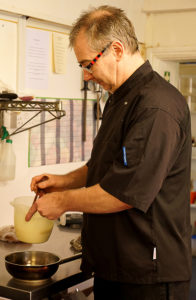
I never planned to work solo in my kitchen, it just worked out that way. Weâve always been small, just 24 seats, with me in the kitchen and my wife, Jacki, on the floor. The idea was to have enthusiastic young chefs â" and we had them for a few years, on and off â" but I was being let down more often than not. You always think you wonât be able to cope if they donât turn up, but you always get through it.
Just over a year ago I made the decision to stop the continual searching for staff and go it alone, with a kitchen porter to help. Iâd already done a lot of nights on my own, so I knew I could do it, and I realised there was a huge amount of satisfaction in that.
My wife says Iâm a little bit calmer these days. Iâm not noticeably more tired than this time last year, but we did opt for an R&R kind of holiday this year rather than our usual flitting about. Anyway, tiredness doesnât bother me. My stamina is one of my greatest strengths â" I just crack on.
I love the increased contact I have with guests. Itâs all so much more personal now. It feels like they are coming to our house and they get it, and thatâs a lovely thing.
I donât worry about being ill. Iâve not taken a day off since we opened in 2007. I worry more about not being good enough.
We stagger the covers, but sometimes itâs better when everyone comes together. We offer a tasting menu, which is ordered by 70% of our customers, plus we offer à la carte. I think a restaurant should be there for the customer, not to make life easier for the chef.
But itâs really all about Jacki and me. We work so well together and I couldnât have done it without her. Chefs are notoriously hard to be with at the best of times and it takes someone special to put up with all our nonsense. Iâm so lucky to have her.
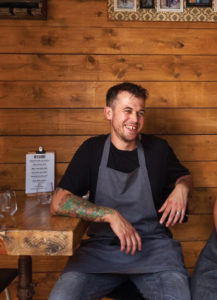
It was always the plan to be on my own in the kitchen â" it was the only way we could do this financially. Though before opening Stark I nearly gave it all up.
I was finding it hard to juggle family life with my job working at the West House in Biddenden. I was commuting from Colchester three times a week and sleeping on sofas the rest of the time. It all got too much, so I planned to open a food truck and do festivals instead. Then I spotted a sandwich shop in Broadstairs with a short-term let.
I applied for a loan from a government-funded start-up called Letâs Do Business and secured £15,000. We opened with 12 seats in December 2016 with my wife Sophie on the floor.
The first three months were tough, only filling a few tables. Then we got a great review in The Guardian from Marina OâLoughlin, which filled us up for the rest of year. And we got The Good Food Guide Chef to Watch award. We went from two enquiries a day to 200.
The downsides? We were getting loads of no-shows, but now we are using a booking system that takes £25 if people cancel less than 36 hours ahead, or the full menu price of £55 if they donât turn up. Since then weâve had three no-shows in the last 18 months.
Our customers are mainly locals who have moved here from London and they are happy with our no-choice, six-course menu. My dishes have no more than three key ingredients. Cooking this way has helped me to refine what I do. It works for me, and for the space.
My kitchen is tiny â" I have one induction hob and one griddle. Customers canât believe what I do in this space. So yes, we stagger our bookings. People are generally pretty good at getting here on time.
Sometimes, I do think it would be nice to work with someone because it can get lonely, but then I canât be bothered with the bullshit of a regimented kitchen anymore. I know what Iâm doing and I get to see the kids every day and I like it this way.
Iâve worked in big brigades. I was a good people manager, but once I became head chef at 28 years old, I got tired of it all so I ended up in a mateâs pub, working on my own a lot.
Then I decided to do the chef-landlord thing, but I messed it up. While I knew how to cook, I didnât know how to run a business. So to pay off my debts I went into private service for high net-worth families, travelling lots, pre-empting every situation, and I soon learned how to be organised â" I became a hybrid soloist. But I missed my wife and kids, so five years ago I bought this pub near Maidenhead that kept winking at me every time I drove past.
I work alone in the kitchen because I have a wild nature and Iâm fast, sharp and clean. Most chefs wouldnât like the hours I put in to achieve what I want, which is luxurious pub food.
To begin with I was on my own, popping corks, reducing wine, calling out checks to nobody and pulling pints. But now my eldest son, Dean, is the director of the business and my second eldest son, George, is the general manager. My wife Deborah does the books â" the pub is our house. Three years after opening, we got a Michelin star.
I donât stagger the bookings as we are just 20 covers and customers arrive in the bar from 6.45 to 7.30 for drinks and little bites. But then I do like a proper rally driving-style of service.
What adaptations have I made? My menu was 6, 6, 6, but there was too much waste, so now itâs 6, 5, 4, plus cheese, and this works well.
My best advice? Have all your details ready and leave nothing to chance. Sure, I can make a soufflé, just like I can pull sugar and temper chocolate, but thatâs for Sunday night at home. If Iâm ill, we shut â" the kitchen is my space and I wonât share it because I love it.
I have an overwhelming feeling of gratitude when I see my family around the table on a Sunday evening, knowing that we will work together the next week. To feed and make guests happy and to give guests memories â" thatâs why we do what we do.
Get The Caterer every week on your smartphone, tablet, or even in good old-fashioned hard copy (or all three!).



